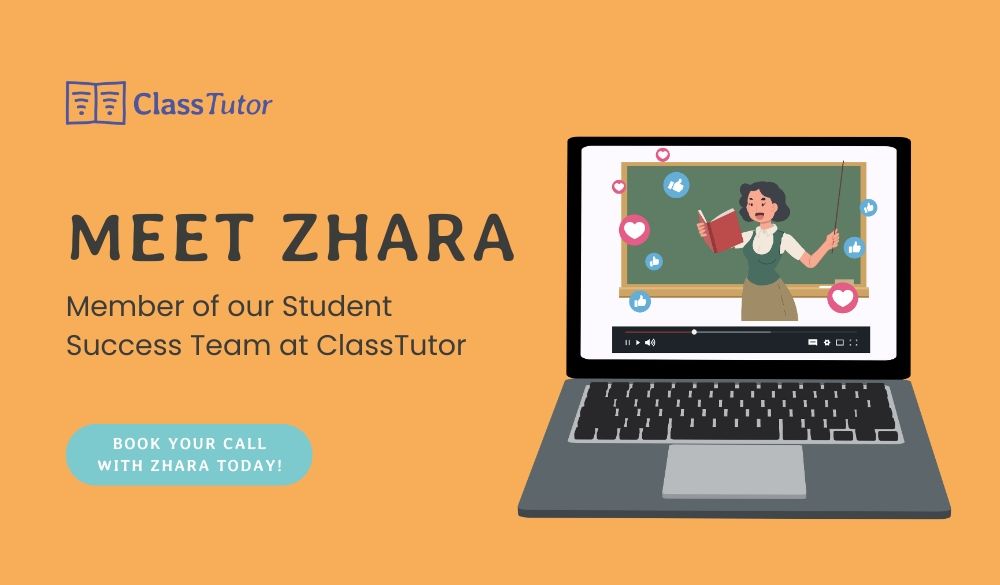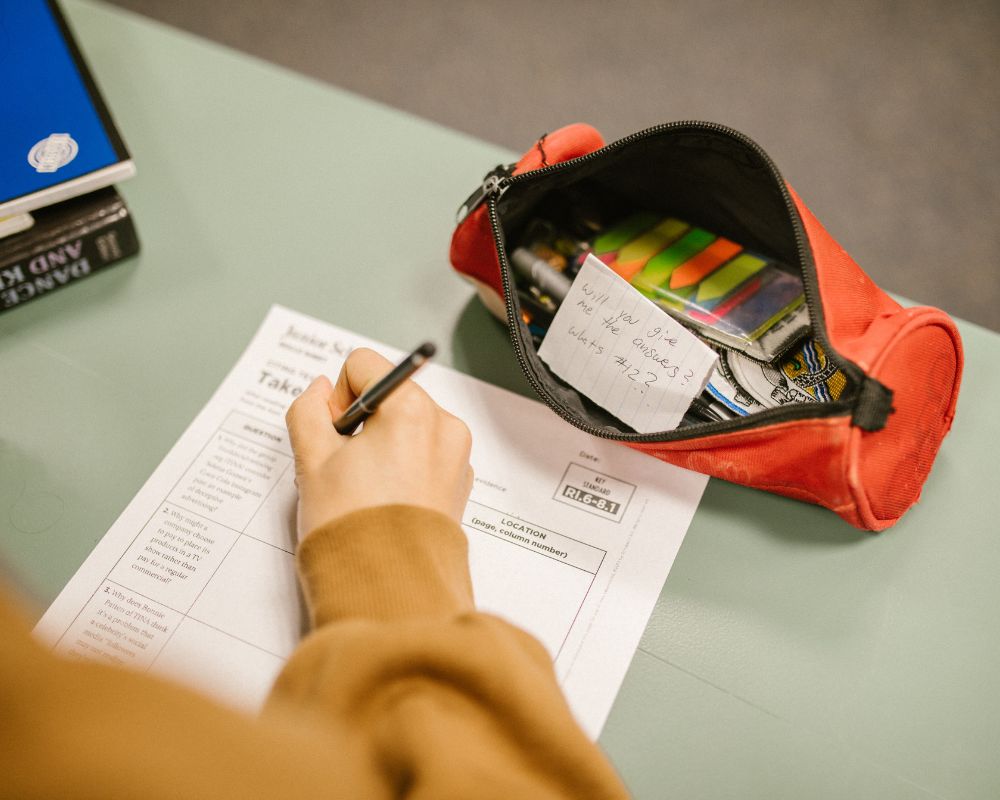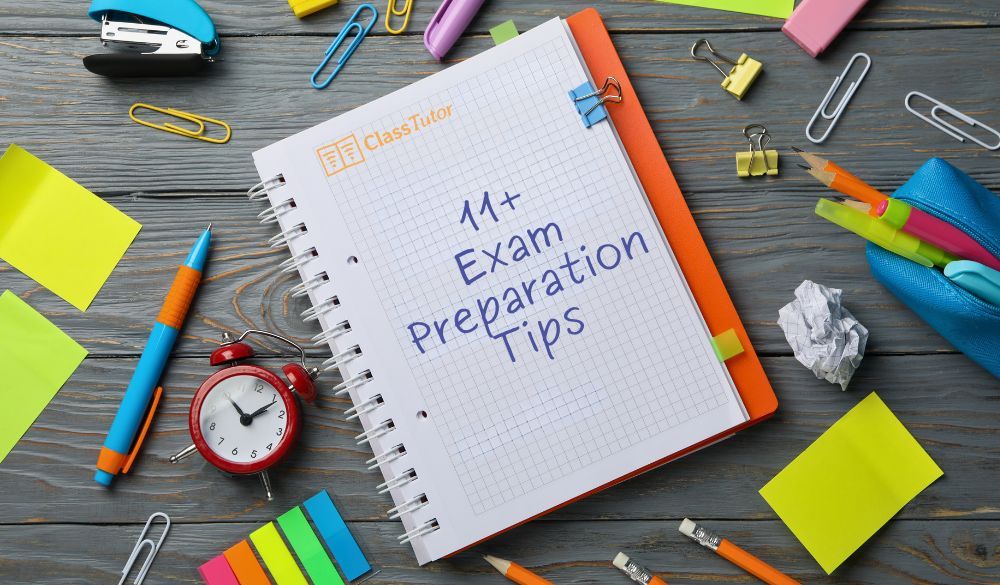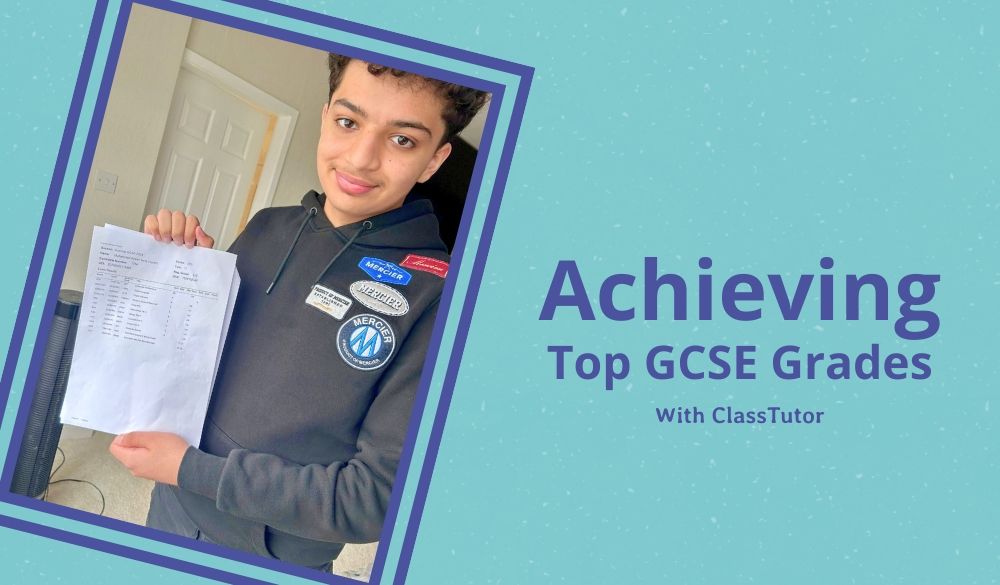How to Prepare for Mock Exams in 2 Weeks
You’ve just seen it in your planner: mock exams start in two weeks. Suddenly, your stomach drops. Two weeks feels like two days when you’re staring at months of content you’re supposed to know inside out.
Take a breath. You’re not alone, and you’re not doomed.
The truth is, two weeks is enough time to make a real difference to your mock results – but only if you use that time wisely. The students who struggle aren’t usually the ones who don’t work hard; they’re the ones who spend hours highlighting notes without actually learning anything, or who jump between topics without a plan.
At ClassTutor, we’ve helped thousands of students prepare for their GCSEs, and we’ve seen what works. This guide gives you a structured, day-by-day approach to make the most of the next 14 days. Whether you’re aiming to boost a grade 5 to a 7, or simply pass subjects you’ve been struggling with, this plan will help you walk into that exam hall feeling prepared rather than panicked.
Week 1: Building Your Foundation (Days 1-7)
The first week isn’t about cramming everything into your head. It’s about being strategic – working out what you need to focus on and tackling your weakest areas while your energy and motivation are at their highest.
Days 1-2: Audit and Prioritise
Before you open a single textbook, you need to know exactly what you’re dealing with. Grab a piece of paper and list every subject you’re being tested on, then break each subject down into its main topics.
Now comes the important bit: RAG rate each topic. Go through your list and mark each topic as:
- Red – I don’t understand this at all
- Amber – I’m a bit shaky on this
- Green – I’m confident with this
Be honest with yourself. There’s no point marking something green because you understood it six months ago if you haven’t looked at it since.
Next, think about where the marks are. If a topic is worth 20% of the paper and you’ve marked it red, that’s where you need to focus. A small topic worth 5% that you’re already confident with? Leave it for now.
Finally, gather your materials. Dig out your revision guides, class notes, and past papers. Check which exam board you’re doing for each subject (AQA, Edexcel, OCR – it matters) and download past papers from their websites if you haven’t already.
Days 3-5: Tackle the Reds
This is where the real work begins. You’re going to focus on your red topics first – the ones you genuinely don’t understand. Why? Because your brain is freshest at the start of your revision period, and these topics need the most effort.
Here’s the key: don’t just read your notes. Reading feels productive, but it’s passive learning – the information goes in one eye and out the other. Instead, use active recall:
- Read through a topic for 10-15 minutes
- Close the book
- Write down everything you can remember
- Check what you missed and focus on those gaps
As you work through each topic, create condensed notes – one page maximum per topic. These become your revision cards for the second week. The act of condensing information forces you to identify what’s actually important.
If you’re genuinely stuck on something, don’t waste hours going round in circles. Ask for help – message your teacher, ask a parent to explain it, or search for a YouTube explanation. Sometimes a different voice explaining the same concept makes everything click.
Days 6-7: Consolidate and Test
You’ve spent three days tackling your weakest topics. Now it’s time to check whether that knowledge has actually stuck.
Find practice questions on the topics you’ve covered – your textbook, past papers, or online resources all work. Do these questions without your notes, then mark them properly using the mark scheme. Be strict with yourself – examiners are.
When you get something wrong, don’t just think “oh, I knew that really” and move on. Write out the correct answer and understand why you got it wrong. Was it a silly mistake? A gap in your knowledge? Misunderstanding the question?
At the end of day 7, go back to your RAG list. Have any of your reds moved to amber? They should have. If something’s still red, flag it – you’ll need to return to it in week two.
| 💡 Pro Tip: Schedule a BreatherDay 7 should be lighter than the others. Your brain needs time to process what you’ve learned. Do a couple of hours of revision, then take the evening off. Watch something, see friends, do something that isn’t staring at notes. You’ll come back stronger for week two. |

Week 2: Exam Mode (Days 8-14)
Week one was about understanding. Week two is about performing. You’re going to shift your focus from learning content to practising how to use it under exam conditions.
Days 8-10: Past Paper Practice
Past papers are the single most valuable revision resource you have. They show you exactly what the exam looks like, how questions are worded, and what examiners are looking for.
But here’s the thing: you need to do them properly. That means:
- Timed conditions – set a timer for the exact length of the exam
- No notes, no phone, no distractions
- A quiet space where you won’t be interrupted
- Proper exam equipment only (the pens and calculator you’ll use on the day)
Yes, it feels uncomfortable. That’s the point. You want the discomfort now, not on exam day.
After each paper, mark it using the official mark scheme (available on exam board websites). Don’t just count up your score – analyse your performance. Which questions lost you marks? Was it content you didn’t know, or did you understand the material but struggle with the question format?
Look for patterns across papers. If you’re consistently losing marks on 6-mark questions, that’s an exam technique issue. If you’re losing marks on the same topic every time, that’s a knowledge gap you haven’t filled.
Days 11-12: Targeted Revision
Based on your past paper analysis, you now know exactly where your weaknesses are. These two days are for targeted attacks on those specific areas.
If you struggled with particular question types, practise just those. Most exam boards publish topic-specific past paper questions or you can find them on revision websites. Do five or six questions on the same topic until you’re confident.
Read examiner reports too – these are goldmines. Examiners write them after each exam series explaining what students did well and where they went wrong. You’ll often see comments like “Many students confused X with Y” or “Candidates often failed to explain their reasoning.” Learn from other people’s mistakes so you don’t make them yourself.
One powerful technique: teach someone else. Explain a difficult concept to a parent, sibling, or even your pet. If you can explain it clearly, you understand it. If you stumble, you’ve found a gap.
Days 13-14: Final Preparation
The last two days before your first exam are not for learning new content. If you don’t know it by now, cramming it in at the last minute won’t help – it’ll just stress you out.
Instead, focus on:
- Light revision – flick through your condensed notes, review flashcards, skim key formulas and quotes
- Practical preparation – pack your bag the night before (pens, pencils, ruler, calculator, clear pencil case)
- Check the details – confirm your exam times and room locations
- Sleep properly – aim for 8+ hours the night before each exam
- Eat well – a proper breakfast makes a real difference to concentration
The night before an exam, do one light review session in the early evening, then stop. Watch something relaxing, have a bath, read a book – whatever helps you unwind. A rested brain performs far better than an exhausted one.
Subject-Specific Quick Wins
Every subject has its own quirks. Here are high-impact tips for the core GCSEs that can gain you marks quickly.
Maths
- Memorise the formulas not on the formula sheet – the quadratic formula, trigonometric ratios, and circle theorems need to be in your head, not just recognised
- Always show your working – even if you get the final answer wrong, you can pick up method marks for a correct approach
- Start with what you know – don’t get stuck on question 1 if it’s hard; move on and come back
- Check your calculator is in the right mode – degrees vs radians catches people out every year
English
- Learn fewer quotes, but learn them deeply – 5-6 versatile quotes per text that you can analyse in detail beats 20 quotes you can barely remember
- Structure your paragraphs consistently – Point, Evidence, Explain, Link (PEEL) keeps your analysis focused
- Watch your timing – English Literature especially punishes students who spend too long on Section A
- For Language Paper 1, read the extract twice – once for understanding, once for the specific details you’ll analyse
Science
- Required practicals come up constantly – know the method, variables, and how to improve accuracy for each one
- Use diagrams wherever possible – a labelled diagram can explain a process faster and often gains marks that words alone miss
- Understand command words – “describe” means say what happens; “explain” means say why it happens; “evaluate” means give both sides
- For calculations, always include units – it’s an easy mark that students throw away constantly

Managing Stress and Staying Motivated
Two weeks of intensive revision is a marathon, not a sprint. You need to look after yourself to perform at your best.
Use the Pomodoro Technique: 25 minutes of focused work, then a 5-minute break. After four cycles, take a longer 15-20 minute break. This keeps your brain fresh and prevents the glazed-over feeling of revising for three hours straight.
Move your body every day. Even a 20-minute walk makes a measurable difference to concentration and memory. Exercise isn’t a luxury during revision – it’s part of the process.
Talk about how you’re feeling. If you’re stressed or overwhelmed, tell someone – a parent, a friend, a teacher. Bottling it up makes everything harder.
Keep perspective. Mocks are practice exams. Their entire purpose is to show you what you need to work on before the real thing. A disappointing mock result isn’t failure – it’s information. It tells you exactly where to focus your energy for the months ahead.
Reward yourself. Finished a tough revision session? Watch an episode of something. Completed a past paper? Get a snack you love. Small rewards keep you motivated and make the process feel less like punishment.
And finally: stop comparing yourself to others. Your friend who seems totally relaxed might be panicking inside. Your classmate who’s “done nothing” might actually be revising constantly. Focus on your own progress, your own plan, your own goals.
What If Two Weeks Isn’t Enough?
Let’s be honest: for some students, two weeks of independent revision won’t be enough to get where they need to be. And that’s okay.
If you’re significantly behind in a subject, or you’ve been struggling all year, you might need more structured support. This is where targeted tutoring can make a real difference – not because you’re “bad at school,” but because having an expert identify your specific gaps and work through them with you is simply more efficient than figuring it out alone.
At ClassTutor, our online group lessons start from just £12 per hour, making expert help accessible for families who thought tutoring was out of reach. Small group sizes mean you still get personal attention, and our tutors specialise in GCSE preparation – they know exactly what examiners are looking for.
Even a few targeted sessions before your mocks can help you understand topics that have been confusing you for months, learn exam techniques that gain extra marks, and build confidence going into the exam hall.
| Need Extra Support?Book a free trial lesson with ClassTutor and see how our expert tutors can help you prepare for your mock exams – and beyond. |

You’ve Got This
Two weeks might feel like nothing, but with a structured approach, it’s enough time to make a genuine impact on your mock exam results.
Remember the key principles:
- Week 1 is for building foundations – audit your knowledge, tackle your weakest topics, create condensed notes
- Week 2 is for exam practice – past papers under timed conditions, targeted revision based on your results
- Look after yourself – breaks, exercise, sleep, and perspective are all part of performing well
- Mocks are practice – they’re designed to show you what to work on, not to define your future
The most important thing you can do right now? Start. Don’t wait until tomorrow, don’t spend an hour planning the perfect revision timetable, don’t reorganise your desk for the third time. Open your notes, pick your weakest topic, and begin.
Two weeks from now, you’ll either wish you’d started today – or you’ll be glad you did.
Good luck. You’ve got this.
Related Articles
- GCSE Science Revision: A Parent’s Complete Guide
- 4 Tips to Cope with Exam Stress
- The Best Revision Techniques to Boost Your Exam Success
- GCSE Preparation Schedule for Year 11 Students
—
ClassTutor offers online group tutoring for ages 6-18 across GCSE, A-Level, 11+, and primary education.
Lessons start from £12/hour. Book your free trial at classtutor.co.uk



























































